Wondering which Mexican pepper to use for your salsa or why some are hotter than others? This guide cuts through the confusion with a clear comparison of heat levels, flavor profiles, and practical substitutions you can use today. Skip the guesswork - here's exactly how jalapeños compare to serranos, which peppers work best for authentic salsas versus moles, and how to choose the right heat level for your cooking skill.
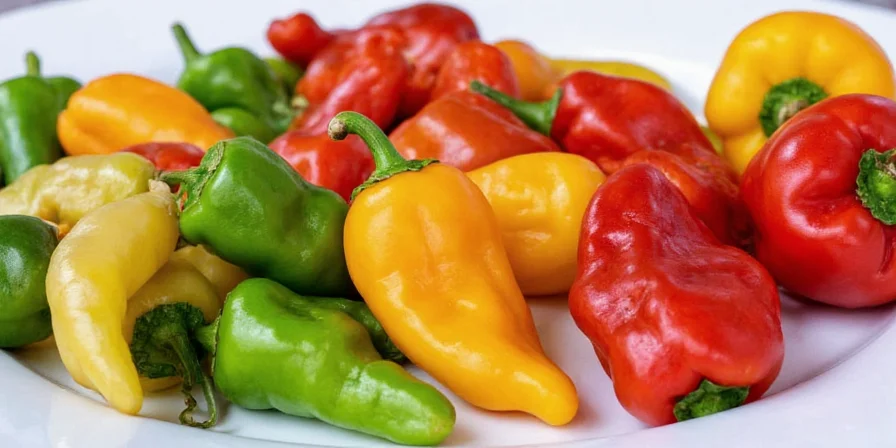
Mexican peppers range from mild poblanos to fiery habaneros - here's how to choose
Most home cooks struggle with Mexican peppers because standard guides don't explain what matters most: how hot they really are compared to each other, which ones work for specific dishes, and what to use when you can't find the exact variety. This guide fixes that with a chef-tested reference you'll actually use in your kitchen.
| Pepper Type | Heat Level (SHU) | Best For |
|---|---|---|
| Ancho/Poblano | 1,000-2,000 SHU (mild) | Mole sauces, stuffed peppers, mild salsas |
| Guajillo | 2,500-5,000 SHU (medium-low) | Adobo sauces, pozole, marinades |
| Jalapeño | 2,500-8,000 SHU (medium) | Salsas verdes, nachos, pickled peppers |
| Chipotle | 5,000-10,000 SHU (medium-hot) | Smoky sauces, carnitas, adobo blends |
| Serrano | 10,000-23,000 SHU (hot) | Pico de gallo, ceviche, hot sauces |
| Chile de Árbol | 15,000-30,000 SHU (very hot) | Salsa taquera, finishing oils, vinegar sauces |
| Habanero | 100,000-350,000 SHU (extreme) | Xnipec salsa, citrus marinades, hot honey |
Quick Reference: Mexican Peppers by Heat Level
Confused about Mexican pepper heat? This simple breakdown shows exactly how they compare to help you choose wisely:
Mild Mexican Peppers (Under 5,000 SHU)
- Ancho/Poblano (1,000-2,000 SHU) - Perfect if you hate spicy food but want authentic flavor. These mild peppers add depth to mole sauces without overwhelming heat. Best substitute: Bell peppers (for zero heat) or pasilla peppers.
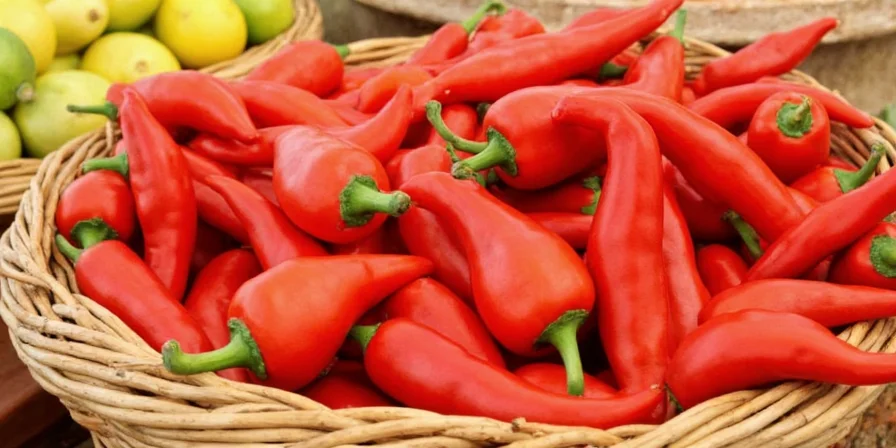
Anchos are the mildest dried peppers - ideal for beginner cooks
- Guajillo (2,500-5,000 SHU) - The secret weapon for authentic red sauces. These dried peppers have subtle berry notes that work perfectly in pozole and adobo. Best substitute: New Mexico chiles or a mix of ancho and cayenne.
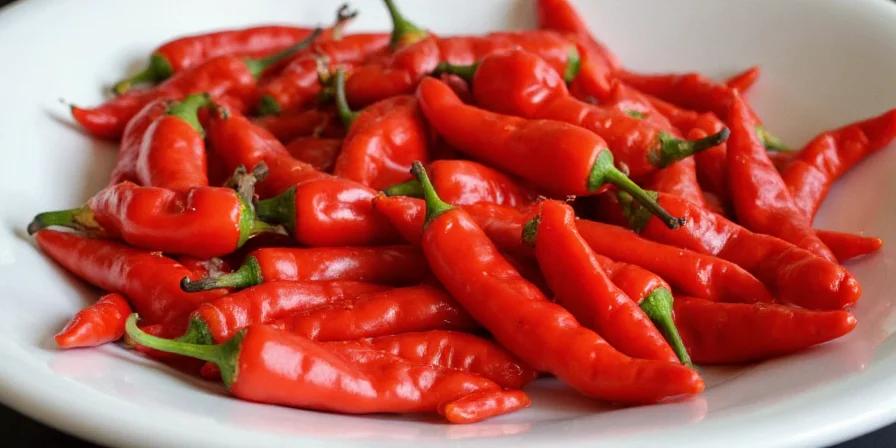
Guajillos add rich color and mild heat to traditional sauces
Medium Heat Mexican Peppers (5,000-20,000 SHU)
- Jalapeño (2,500-8,000 SHU) - The most common Mexican pepper you'll find fresh. Jalapeños work great in salsas and on nachos. Remove seeds for milder flavor. Best substitute: Serranos (use half the amount) or fresno peppers.
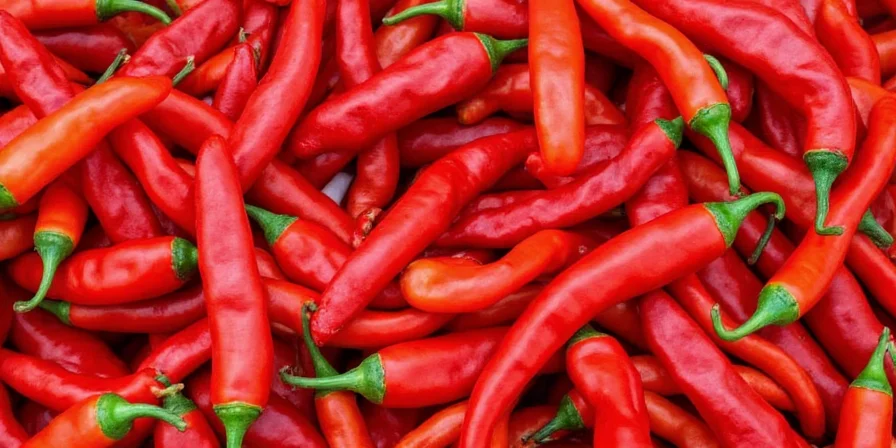
Jalapeños are the gateway pepper for most home cooks
- Chipotle (5,000-10,000 SHU) - Smoked jalapeños with deep, smoky flavor. These add complexity to sauces without extreme heat. Best found canned in adobo sauce. Best substitute: Smoked paprika + cayenne (1 tsp paprika + 1/8 tsp cayenne per pepper).
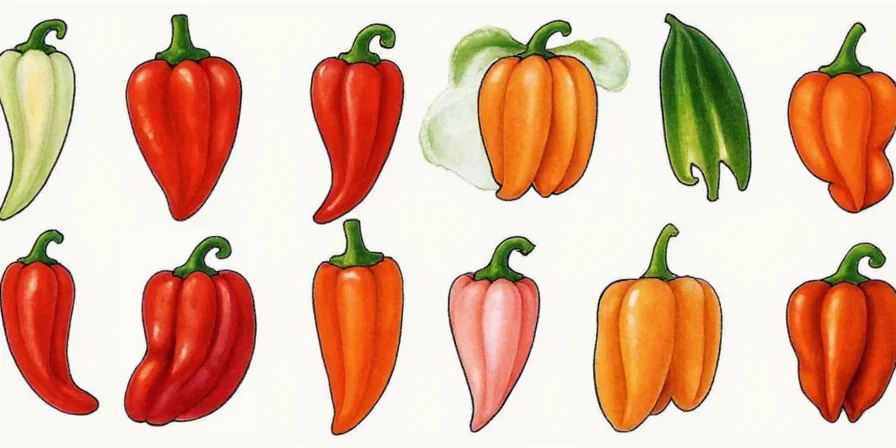
Chipotles add smokiness without overwhelming heat
- Serrano (10,000-23,000 SHU) - Hotter cousin to jalapeños with brighter flavor. Perfect for pico de gallo and fresh salsas where you want noticeable heat. Best substitute: Jalapeños (use double the amount) or Thai chilies.
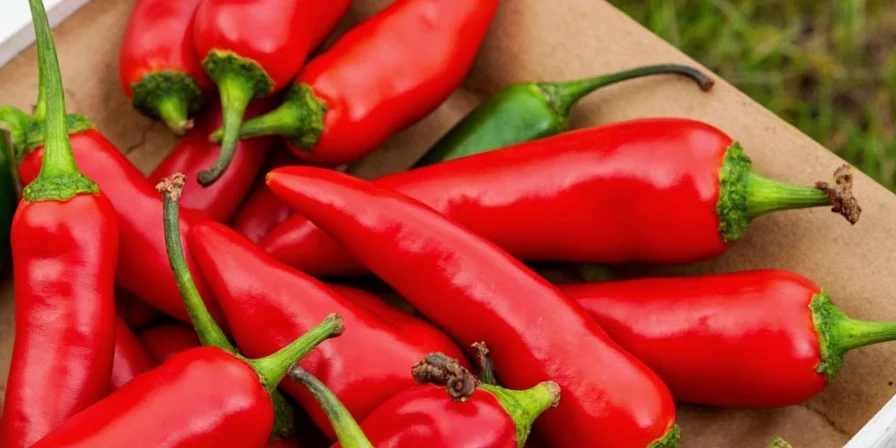
Serranos pack more heat than jalapeños while keeping fresh flavor
Hot Mexican Peppers (Over 20,000 SHU)
- Chile de Árbol (15,000-30,000 SHU) - Thin, pointy peppers with clean, sharp heat. Great for hot sauces where you want heat without competing flavors. Best substitute: Cayenne pepper (use 1/2 tsp per pepper).
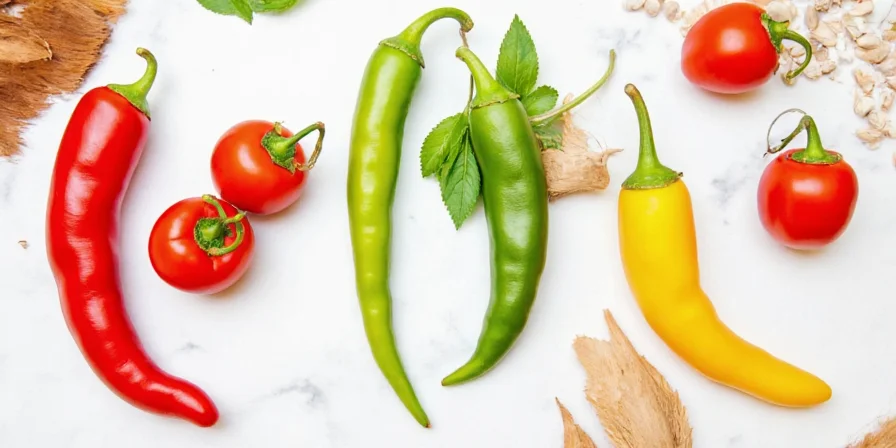
Chile de árbol delivers pure heat without overpowering other flavors
- Habanero (100,000-350,000 SHU) - The hottest common Mexican pepper with distinctive fruity notes. Use sparingly in salsas and marinades. Best substitute: Scotch bonnet peppers (similar flavor profile).
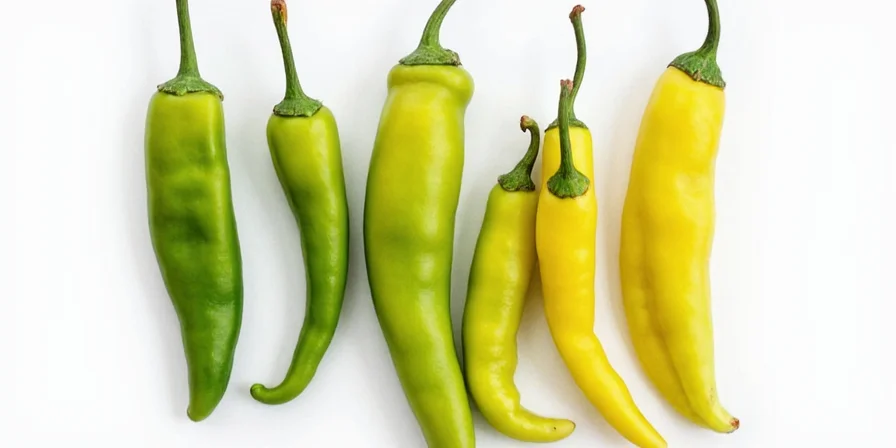
Habaneros bring tropical fruit notes along with serious heat
Pro Tips You Won't Find in Most Guides
- Reduce heat without losing flavor: Remove ALL seeds and white membranes, but keep the fleshy walls where flavor compounds concentrate. Traditional Mexican cooks use torn tortilla pieces (not dairy) to neutralize heat while preserving flavor.
- Get authentic flavor: For mole poblano, use Puebla-grown poblanos. For Yucatán recipes, seek habaneros from limestone-rich soil for proper fruit notes.
- Toast dried peppers properly: Heat a dry clay comal (or cast iron skillet) over medium heat. Toast peppers 15-20 seconds per side until fragrant but not burnt.
- Preserve volatile compounds: Add habaneros in final cooking minutes to keep their tropical fruit essence.
- Identify authentic Mexican peppers: Look for Denominación de Origen labels. Mexican-grown peppers often have irregular shapes and soil traces - avoid uniform, oversized specimens.
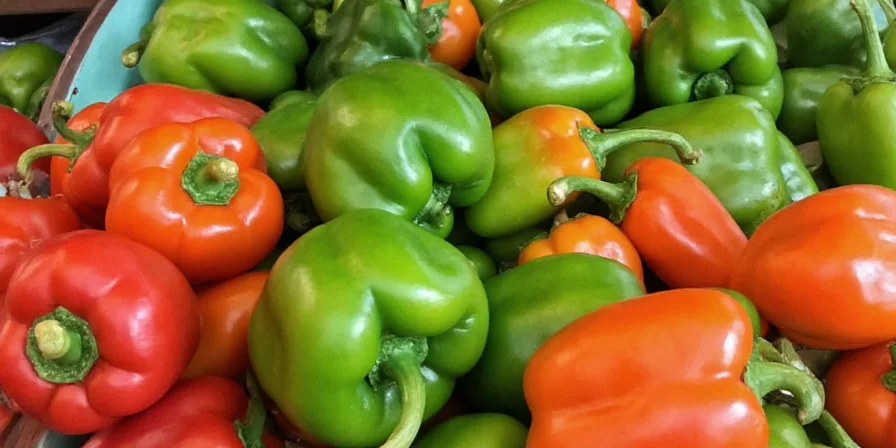
Proper toasting brings out the best flavors in dried peppers
Common Questions Answered
Which Mexican pepper is mildest for beginners?
Ancho/poblano peppers (1,000-2,000 SHU) are the mildest common Mexican peppers. These dried poblanos add rich, raisin-like flavor to mole sauces without overwhelming heat. For fresh peppers, try pasilla bajio which has similar mild heat.
Jalapeño vs Serrano - which is hotter and when to use each?
Serranos are significantly hotter (10,000-23,000 SHU) than jalapeños (2,500-8,000 SHU). Use jalapeños for milder salsas and nachos where you want noticeable but manageable heat. Choose serranos for pico de gallo, ceviche, and fresh sauces when you want more pronounced heat with bright flavor.
What's the best substitute for ancho pepper?
For mild heat and similar flavor, use pasilla peppers. For zero heat, bell peppers work well. If you need the dried pepper texture, combine 1 tsp mild paprika with 1/4 tsp cumin per pepper. Never substitute hotter peppers like guajillo as they'll overwhelm your dish.
Which Mexican pepper is best for authentic salsa?
For red salsa: Use a combination of guajillo (for color and mild heat) and chile de árbol (for clean heat). For green salsa: Fresh serranos provide the best balance of heat and fresh flavor. For fruity salsas: A single habanero adds authentic Yucatán flavor without overwhelming heat.
How do I reduce pepper heat without ruining flavor?
Remove all seeds and white membranes (where capsaicin concentrates), but keep the fleshy walls where flavor compounds live. For immediate heat relief while eating, traditional Mexican preparation uses torn tortilla pieces or rice (not dairy) which absorb capsaicin while preserving flavor compounds.
Putting It All Together: Simple Recipe Applications
- Beginner-Friendly Salsa: 3 jalapeños (seeds removed), 4 tomatoes, 1 onion, cilantro. Perfect heat level for most palates.
- Authentic Mole Base: 4 ancho peppers (toasted), 2 guajillos, 1 pasilla. Creates deep flavor without excessive heat.
- Yucatán-Style Hot Sauce: 1 habanero, 1 cup orange juice, 1 garlic clove. Simmer 10 minutes for balanced heat.
- Street Taco Sauce: 2 serranos, 1 cup vinegar, 1/2 cup water, salt. Simmer 15 minutes for authentic taqueria flavor.
- Smoky Chipotle Mayo: 1 chipotle in adobo + 1/2 cup mayo + 1 tsp lime juice. Perfect for sandwiches and burgers.
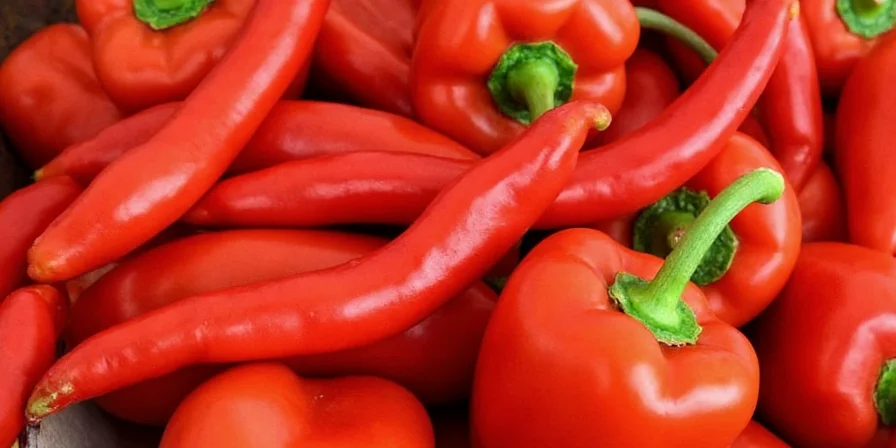
Simple jalapeño grilled cheese makes the perfect beginner recipe
Why This Knowledge Matters
Understanding Mexican peppers isn't just about heat - it's about creating authentic flavor experiences. When you know exactly how hot each pepper is and what dishes they work best in, you'll stop guessing and start cooking with confidence. The right pepper choice transforms ordinary dishes into memorable meals that taste like they came from Mexico itself.
Start small - try one substitution this week using our heat comparison chart. You'll immediately notice how the right pepper makes all the difference. Remember: authentic Mexican cooking isn't about overwhelming heat, but about balancing flavors where the pepper enhances rather than dominates.
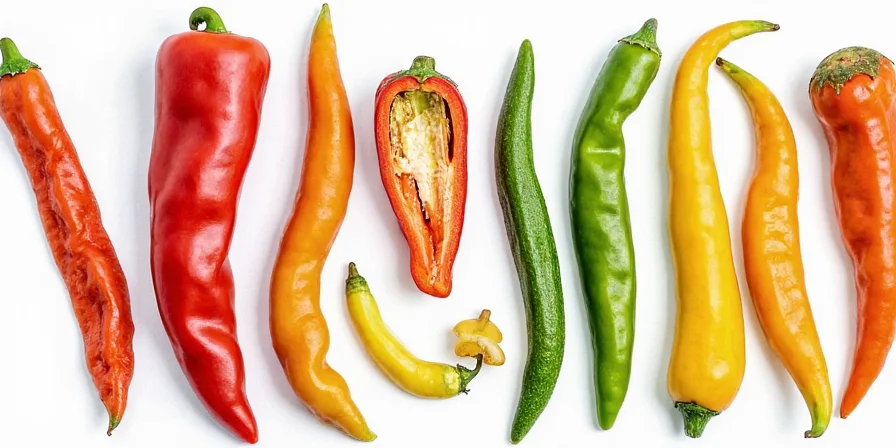
Traditional Mexican preparation uses tortillas - not milk - to balance heat

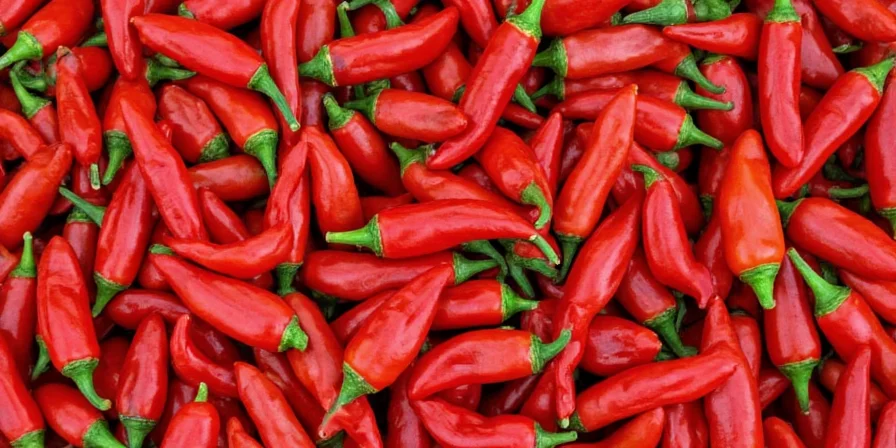









 浙公网安备
33010002000092号
浙公网安备
33010002000092号 浙B2-20120091-4
浙B2-20120091-4